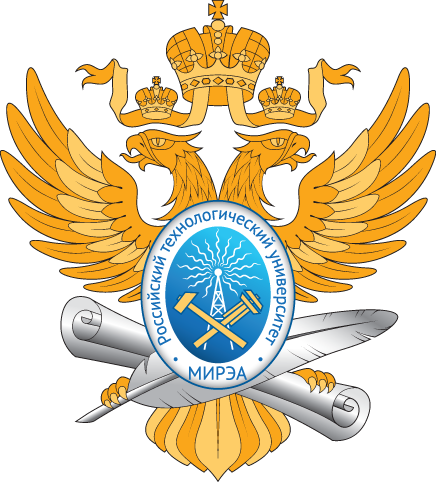01.04.05 Statistics
Level of education:
Master’s degree
Form of training:
Full-time (daytime)
Venue of training:
Moscow
Entrance exams:
— Higher mathematics
Programs, specializations:
Data analysis in business and economics

Students of this Master’s program are expected to acquire fundamental knowledge of statistical and mathematical analysis methodology, permitting students to professionally analyze and forecast macro- and micro-level socio-economic processes, and to perform statistical and mathematical modeling of business processes based on machine learning techniques.
Upon graduation, students of this master’s program will become singular specialists/analysts with deep theoretical knowledge of, and practical skills in, statistical and mathematical analysis, capable of modeling socio-economic phenomena and processes and of assessing the state and development prospects of specific entities and trends, with proper account taken of current economic profiles.
Their research skills will enable them to participate in implementing research projects and to independently resolve methodological issues when exploring various macro- and micro-level social or economic phenomena.
Upon graduation, students of this master’s program will become singular specialists/analysts with deep theoretical knowledge of, and practical skills in, statistical and mathematical analysis, capable of modeling socio-economic phenomena and processes and of assessing the state and development prospects of specific entities and trends, with proper account taken of current economic profiles.
Their research skills will enable them to participate in implementing research projects and to independently resolve methodological issues when exploring various macro- and micro-level social or economic phenomena.
Alumni can be employed as
- analyst
- financial analyst
- business analyst
- economist and analyst in a financial company
- economist in a large, medium and small business
- civil service employee
- statistician
- market researcher/statistician
Program subjects
- Economic and business process analysis
- Risk modeling and management
- Econometric modeling
- Statistical analysis methodology for big data
- Neural network-based forecasting
- Multivariate statistical analysis
- Multivariate panel data analysis
- Statistical methods of business analysis
- Statistical software
Statistics Department
- Educational Activity
-
Institutes
- Institute of Information Technologies
-
Institute of Artificial Intelligence
- About the Institute
- Institute Administration
- History of the Institute
-
Training programs
- Bachelor's Degree Programs
-
Master's Degree Programs
- 01.04.02 Applied mathematics and information science
- 09.04.01. Informatics and computer engineering
- 12.04.04 Biotechnical systems and technologies
- 15.04.04 Automation of technological processes and production
- 15.04.06 Mechatronics and robotics
- 27.04.03 System analysis and management
- 27.04.04 Engineering system control
- Infrastructure
- Alumni
- Contacts
- Institute for Cybersecurity and Digital Technologies
-
Institute for Advanced Technologies and Industrial Programming
- About the Institute
- Institute Administration
- History of the Institute
-
Training programs
-
Bachelor's Degree Programs
- 09.03.02 Information systems and technologies
- 11.03.04 Electronics and nanoelectronics
- 12.03.05 Laser technology and laser techniques
- 15.03.01 Mechanical engineering
- 22.03.01 Materials science and technology
- 27.03.01 Standardization and metrology
- 28.03.01 Nanotechnology and microsystems engineering
- 29.03.04 Decorative material working techniques
- 54.03.01 Graphic design
-
Master's Degree Programs
- 09.04.02. Information systems and technologies
- 11.04.04 Electronics and nanoelectronics
- 12.04.02 Optical engineering
- 15.04.01 Mechanical engineering
- 22.04.01 Materials science and technology
- 27.04.01 Standardization and metrology
- 29.04.04 Decorative material working techniques
- 54.04.01 Graphic design
-
Bachelor's Degree Programs
- Infrastructure
- Alumni
- Contacts
- Institute of Radio Electronics and Informatics
- Institute of Management Technologies
- Lomonosov Institute of Fine Chemical Technologies
- Institute of International Education
-
Mega-Laboratories
- Motion Capture Laboratory
- Immersive Technologies Laboratory
- Laboratory for the Development and Transfer of Microfluidic Technologies (DTMT)
- Cell Technologies Megalaboratory operating on the basis of the Department of Chemistry and Technology of Biologically Active Compounds, Medical and Organic Chemistry named after N.A. Preobrazhensky
- General Biotechnology Megalaboratory
- Industry 4.0: Digital Robotized Production center
- Laboratory of Intelligent Autonomous and Multi-Agent Robotic Systems
- Research and Educational Center for Biosynthesis, Isolation and Purification of Monoclonal Antibodies (Generium)
- Rare and Precious Metals Research and Technological Center operating on the basis of the Department of Chemistry and Technology of Rare Elements named after K.A. Bolshakov
- Laboratory of Analytic, Modeling, Design and Digital Prototyping Technologies
- Import Substitution of Information Technologies Educational and scientific testing complex
- Smart Production Systems Educational and Scientific Center
- Elastomers. Thermoplastics. Technologies Educational and Research Center operating on the basis of the Department of Chemistry and Technology of Elastomer Processing named after F.F. Koshelev
- Catalytic and Mass Exchange Processes center
- Center of Innovative Technologies in Microelectronics
- Center for Cybersports Robotics
- Mobile Robotics University Laboratory
- Radio electronic Technologies Megalaboratory
- Departmental Situation Center of the Ministry of Science and Higher Education of the Russian Federation for monitoring the sphere of education and science
- Scientific and Educational Center for Medical Radiology and Dosimetry
- Laboratory of Geographic Information Systems and Technologies
- Educational and Research Center for Space Monitoring ("CosMoCenter")
- Additive Polymer Technologies Center
- Cyber Threat Research Megalaboratory
- Digital Center of Rosatom State Corporation
- Laser Technologies Megalaboratory
- Mathematical Modeling and Artificial Intelligence Megalaboratory
- Megalaboratory of Digital and Additive Technologies in Mechanical Engineering
- Nanomaterials and Nanostructures Diagnostics Center
- Techno-coworking
- TESLA Educational and Research Center
- Bachelor's Degree Programs
- Master's Degree Programs
- Additional Education Programs
- Physical Education and Sports
© 2026 MIREA - Russian Technological University




